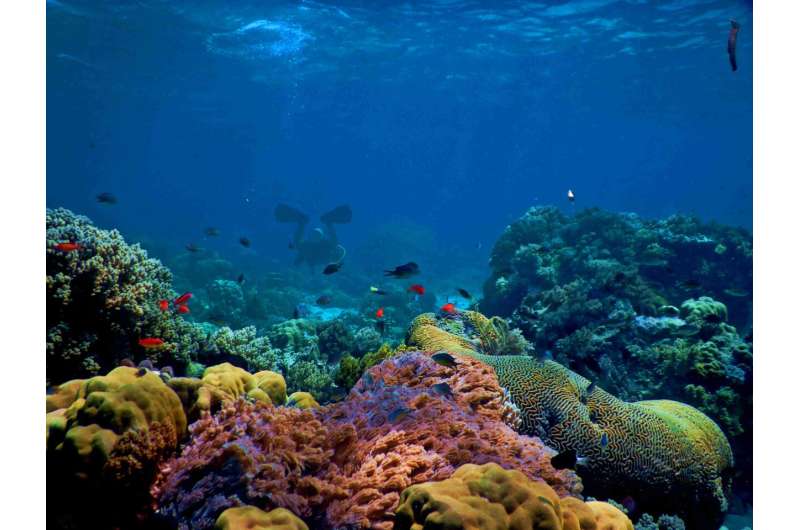This article has been reviewed according to Science X's editorial process and policies. Editors have highlighted the following attributes while ensuring the content's credibility:
fact-checked
peer-reviewed publication
trusted source
proofread
Investigators examine shifts in coral microbiome under hypoxia

A new study published in Applied and Environmental Microbiology provides the first characterization of the coral microbiome under hypoxia, insufficient oxygen in the water. The research is an initial step toward identifying potential beneficial bacteria for corals facing this environmental stressor.
The researchers conducted the study because of the increasing awareness of the impact of the microbiome on host health. For example, a healthy human gut microbiome plays key roles in digestion, immune system response, and even mental health. As in humans, the coral microbiome has beneficial impacts on its host, the coral animal. These include disease prevention, nutrient uptake and resistance to environmental stressors like rising temperatures and acidification.
Despite this, scientists know far less about the role of the microbiome when corals experience hypoxia. The researchers wanted to understand how the microorganisms living on the coral's surface react to hypoxia. They thought the work may provide insights on how symbiotic microbes respond to host and environmental stress.
The researchers conducted their experiments in Bahiá Almirante, Bocas del Toro, Panama. "We picked this site because we have seen hypoxic events here associated with human activity, including agriculture and coastal development," said lead study author Rachel Howard, Ph.D. candidate, Department of Soil, Water and Ecosystem Sciences, University of Florida.
"We established experimental chambers which lowered dissolved oxygen on patches of coral reef. We then sampled the microorganisms living on corals in those chambers and corals outside the chambers after two days to see how the community of microbes differed with and without the stress of low oxygen."
The researchers found that when oxygen levels dropped, the overall coral microbiome changed after only 48 hours, and the number of some specific types of bacteria increased. The bacteria that increased are those that can survive without oxygen and are ready to take advantage of a change in resources.
When there is not enough oxygen in the water, it throws the community of microorganisms on the coral out of balance, and some of the suspected harmful bacteria, such as Desulfovibrionaceae or Clostridia, become more active.
"Because corals vary in their sensitivity to deoxygenation and given the crucial role of microorganisms in coral health, we suggest that changes in the microbiome may influence coral resilience to low oxygen conditions. Episodes of low oxygen, along with other impacts of climate change, pose a threat to coral and other marine organisms," Howard said.
The researchers say that the microbiome is key to understanding the response of corals to stressors including warming seas. This study is a first step toward understanding the response of coral microbiomes to deoxygenation which, along with warming and ocean acidification, represent the "triple threat" of climate change to the ocean's ecosystem.
The researchers plan to look more closely at the health of corals and relate that to the response of coral microbiomes when challenged by the stress of low oxygen.
More information: Rachel Howard et al, Applied and Environmental Microbiology (2023). DOI: 10.1128/aem.00577-23. doi.org/10.1128/aem.00577-23
Journal information: Applied and Environmental Microbiology
Provided by American Society for Microbiology




















